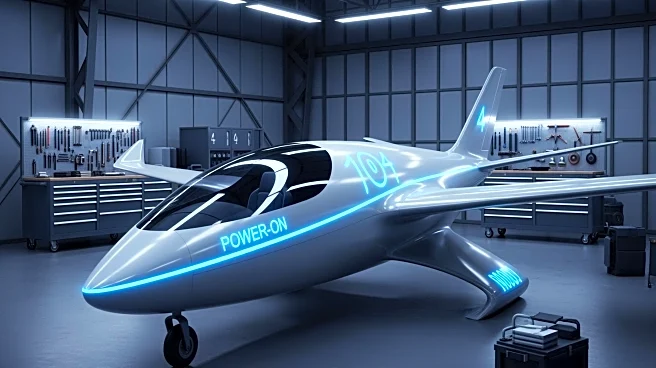What's Happening?
Joby Aviation has commenced power-on testing for its first FAA-conforming aircraft, marking a significant milestone in its journey towards commercialization. This development is part of the final stage
of the FAA Type Certification process, which is crucial for Joby to begin 'for credit' flight testing with FAA test pilots. The testing involves thousands of hardware and software integration tests, ensuring the aircraft meets all safety and performance standards. Didier Papadopoulos, President of Aircraft OEM at Joby, emphasized the importance of this step, noting it validates the company's ability to design and produce a safe aircraft. The aircraft has been manufactured using Joby's quality management system and adheres to the intended type design for TIA testing. The testing phase will include performance validation, control and handling assessments, and maintenance and operations checks, all critical for the FAA's final determination on issuing a Type Certification.
Why It's Important?
The initiation of power-on testing is a pivotal moment for Joby Aviation as it moves closer to launching its commercial air taxi service. Achieving FAA certification is essential for Joby to operate its aircraft commercially, which could significantly impact the urban air mobility market. The successful completion of this testing phase could position Joby as a leader in the electric air taxi industry, potentially transforming urban transportation by offering a fast, quiet, and convenient service. This development also highlights the growing interest and investment in sustainable transportation solutions, aligning with broader environmental goals. Stakeholders in the aviation and transportation sectors are closely watching Joby's progress, as it could set a precedent for future innovations in air mobility.
What's Next?
Following the power-on testing, Joby plans to start flight testing with its pilots later this year, with FAA pilots expected to take over in 2026. The data collected during these tests will be crucial for the FAA's decision on granting Type Certification. Joby is also scheduled to release its third-quarter financial results, which may provide further insights into its progress and future plans. As the company advances through the certification process, it will continue to collaborate with the FAA to ensure compliance with all safety and performance requirements. The successful completion of these steps will be vital for Joby to begin commercial operations and expand its market presence.
Beyond the Headlines
Joby's progress in the certification process not only impacts the company but also has broader implications for the aviation industry. It underscores the shift towards electric and sustainable transportation solutions, which could lead to regulatory changes and new industry standards. The development of air taxis also raises questions about urban infrastructure and airspace management, as cities may need to adapt to accommodate this new mode of transportation. Additionally, the success of Joby's aircraft could influence public perception and acceptance of electric air travel, potentially accelerating the adoption of similar technologies.









